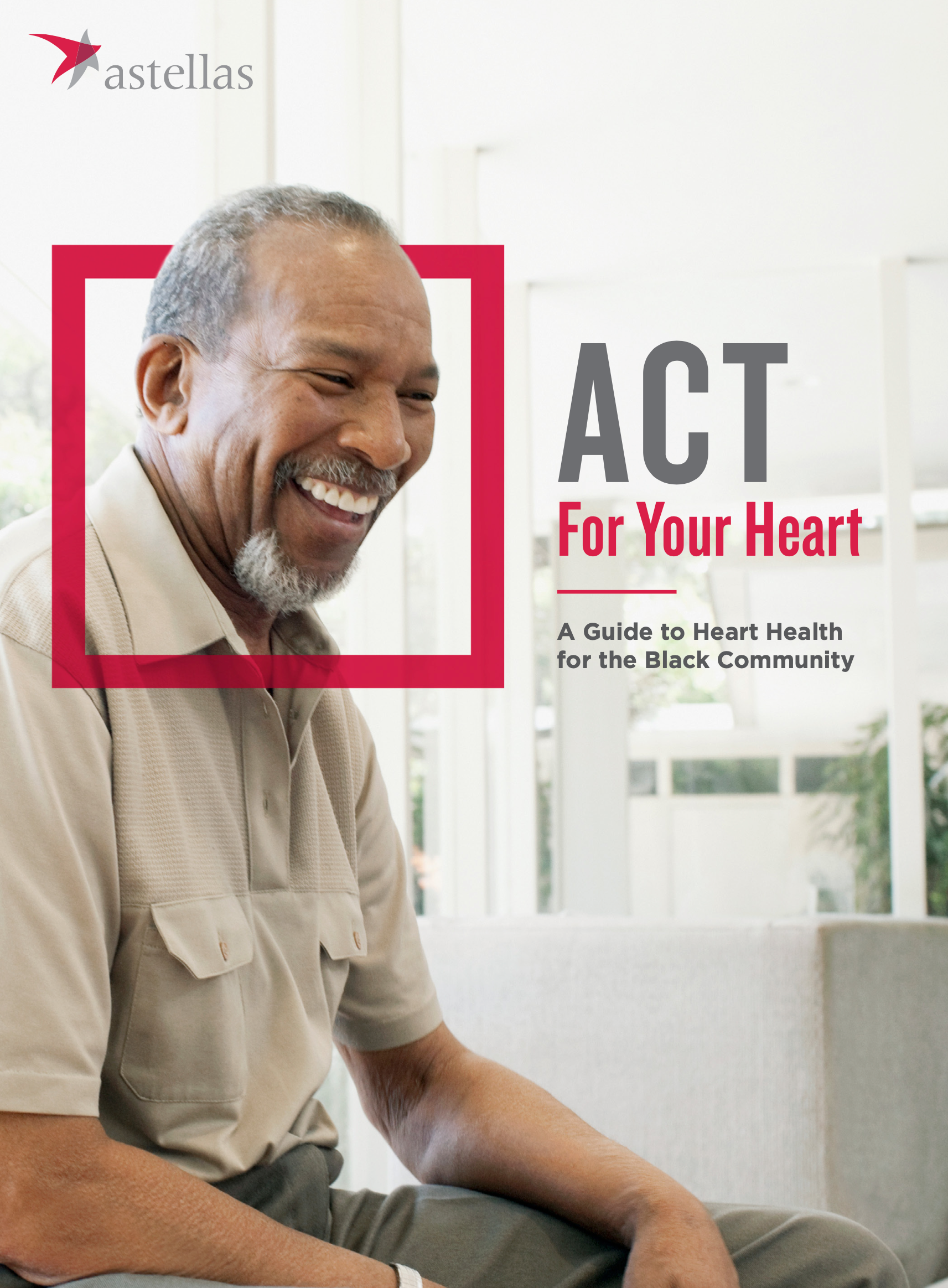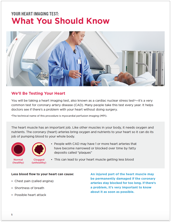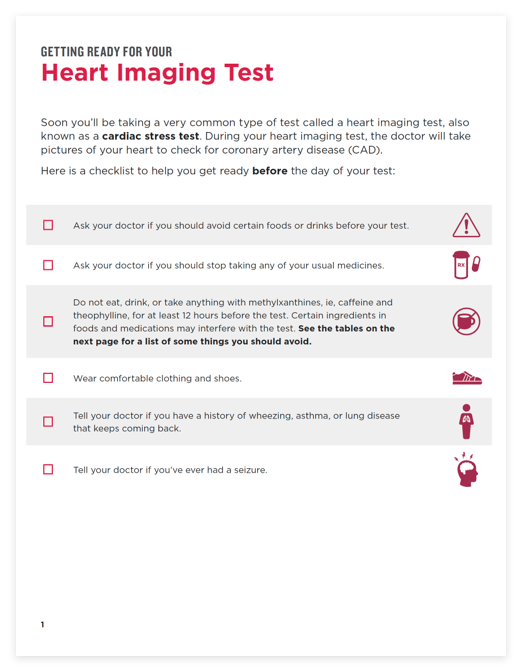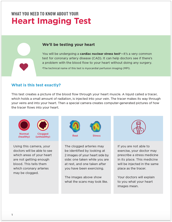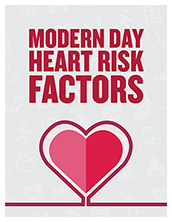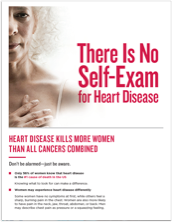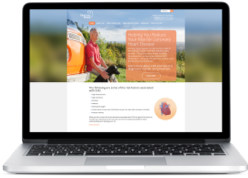Patient Resources
Patient Resources
RESOURCES TO HELP SUPPORT PATIENTS THROUGHOUT CARDIAC TESTING
Download and Share Customizable Resources With Your Patients
Astellas provides shareable, educational, patient-friendly resources to better support your lab and your patients’ journey through cardiac testing. Communicating expectations and information can help patients feel more confident and prepared, leading to a better experience for both them and your lab.
Explore the below educational resources to help patients learn about coronary artery disease (CAD) and its risk factors, as well as steps to prepare for their cardiac stress test. These resources are available in multiple languages. They can be customized with your facility information and logo and then downloaded to be saved or printed.
Cardiac Imaging Preparation
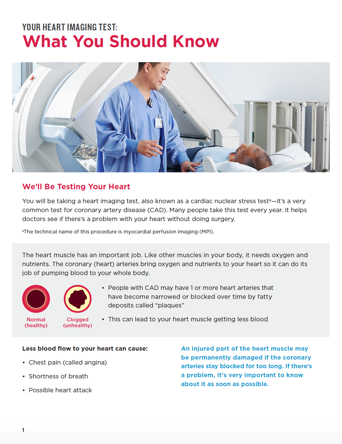
Patient Heart Imaging Test Guide
This educational patient brochure explains what to expect and how to prepare for an upcoming nuclear stress test.
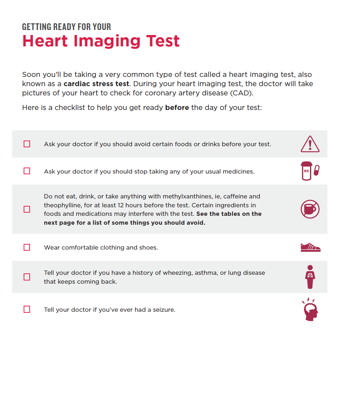
Patient Test Prep Checklist
This 2-page resource provides your patients with a take-home checklist that can help them prepare for their nuclear stress test. It includes a partial list of things your patient should NOT eat or drink prior to their test, as well as some medications to avoid.
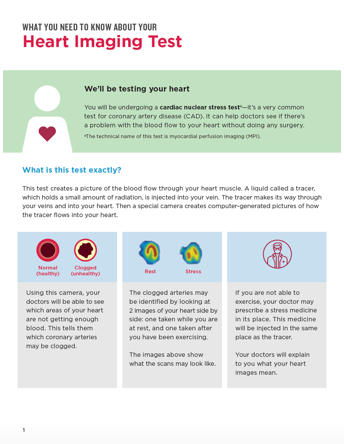
Getting Ready Patient Handout
This handout provides details on what patients need to know about their nuclear stress test procedure and how they can prepare for it. Specifically, it provides them with a checklist of do's and don't's for the days leading up to their test. The handout also includes a place to record the date, time, and location of their procedure.
Risk Awareness
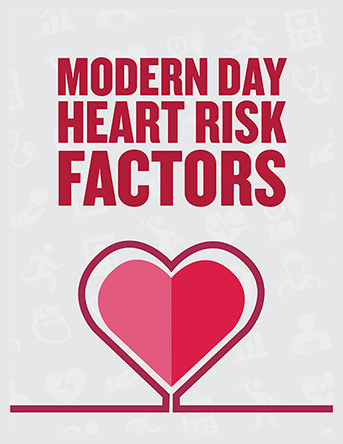
Risk Awareness Fact Sheet
This fact sheet educates patients about some common behaviors that can affect the heart over time and ways to help prevent CAD.
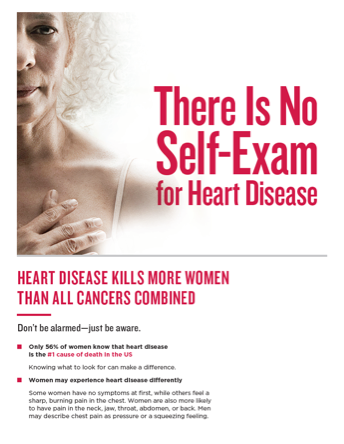
Early Detection Patient Fact Sheet
Specifically designed for female patients, this fact sheet provides information about heart disease, the #1 killer of women in the United States. It also explains how heart disease symptoms are different for women than for men. Further, it encourages female patients to have a conversation with their doctor about heart disease, especially if they have any risk factors and potential symptoms.
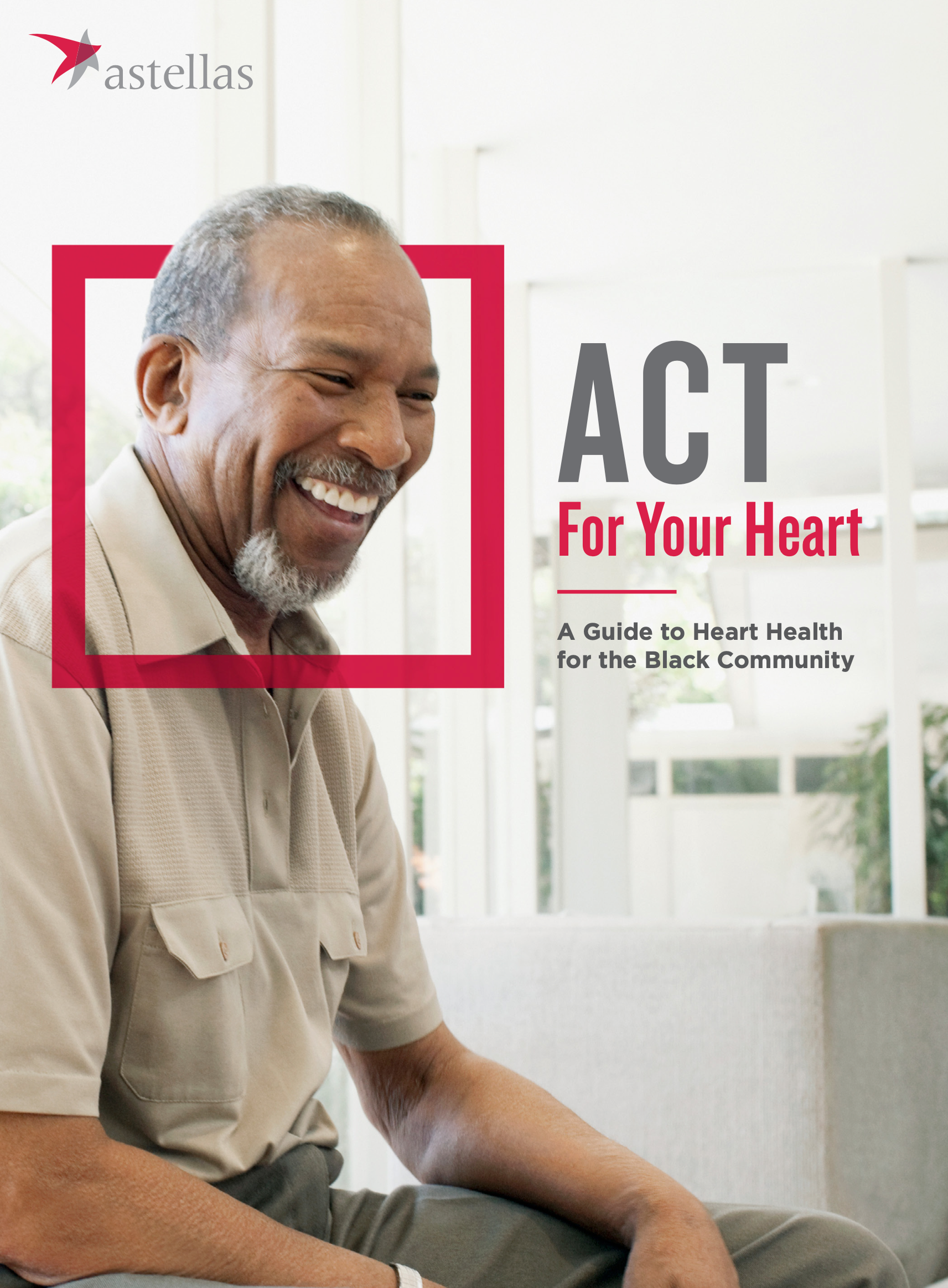
Black Patient Risk Awareness Brochure
This resource discusses 3 cardiovascular risk factors that show up disproportionately among Black patients. It provides ideas for actionable steps to help prevent or mitigate cardiovascular risk factors and encourages patients to talk with their doctors.

Rheumatoid Arthritis Risk Awareness Brochure
This resource discusses the cardiovascular risk factors that tend to correlate with rheumatoid arthritis (RA) and provides ideas for actionable steps to help prevent or mitigate them. The brochure stresses the importance of talking with both a rheumatologist and a primary care doctor about one's risk for heart disease if one has RA.
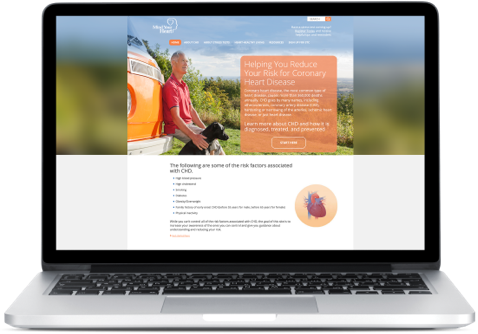
This image may not reflect the
most current version of the website.
Mind Your Heart Facts Website
Share Mind Your Heart Facts with patients to provide them with information on CAD, the tests used to diagnose and monitor it, and quick tips for heart-healthy living.
For technical support, please contact us.
